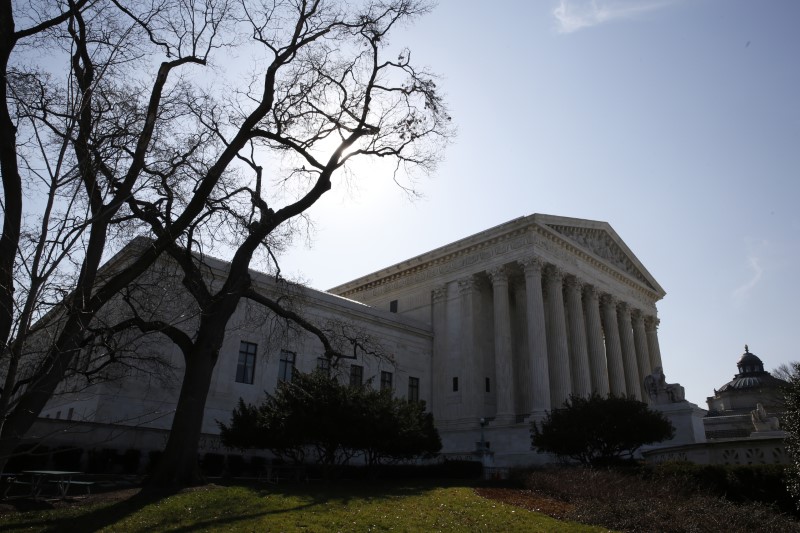By Andrew Chung
(Reuters) - The U.S. Supreme Court on Monday upheld federal disclosure rules for political advertising, rejecting an appeal by a Denver-based libertarian think tank that wanted to run an ad without being forced to divulge its major donors.
The Denver-based Independence Institute sued the Federal Election Commission, arguing the law requiring such disclosure violated its free speech rights under the U.S. Constitution's First Amendment. The Supreme Court affirmed a lower court's ruling last year in favor of the commission.
It was the latest in a decade-long series of cases brought by conservatives aiming to roll back federal campaign finance restrictions.
The Independence Institute was supported in the case by influential Republican and conservative voices including Republican Senate Majority Leader Mitch McConnell and the Judicial Watch legal activist group as well as the U.S. Chamber of Commerce business group.
The institute, ahead of the 2014 congressional elections, had sought to run a radio advertisement about increasing prison costs, telling listeners to urge their Colorado U.S. senators to support sentencing reform.
Because the ad mentioned a senator by name in the lead up to an election, it triggered a provision in the 2002 campaign finance statute known as the McCain-Feingold law requiring the institute to file with the election commission and disclose any donors supporting the ad.
The law was enacted to combat an explosion of what is known as "soft money" in campaigns through so-called sham issue advertisements, which cloaked partisan advocacy in discussions of public policy.
Though the Supreme Court allowed unlimited campaign spending by corporations and unions in its landmark 2010 decision in the Citizens United v Federal Election Commission case, the court also upheld disclosure requirements for campaign ads.
The Federal Election Commission said that for more than a century federal law has required organizations that influence elections to disclose information about their funding sources, a principle upheld in the Citizens United ruling.
The Independence Institute sued in federal court in Washington in a bid to keep the names of its donors secret, arguing that its proposed ad focused on the sentencing reforms that senators were considering, not any senator's re-election campaign.

Last October, a three-judge panel of the federal court ruled against the group, saying it would be impossible to distinguish genuine issue ads that reference candidates from campaign-style ads that openly promote or disparage a candidate.